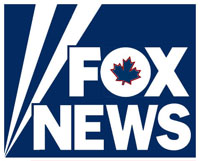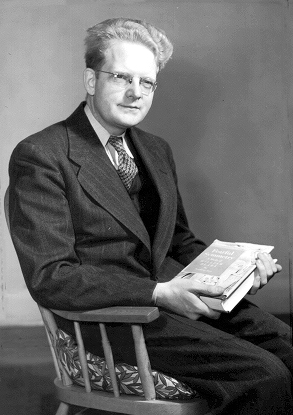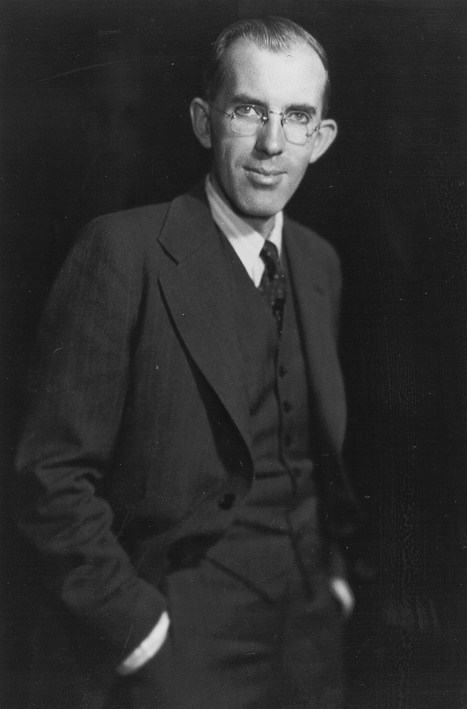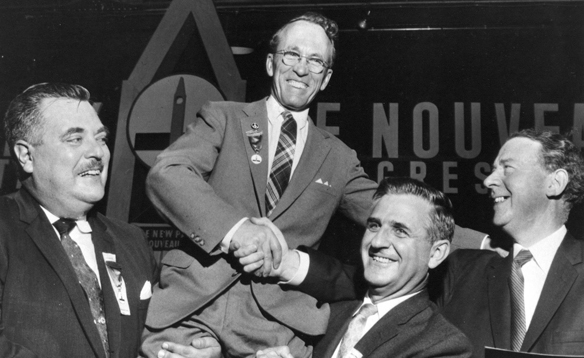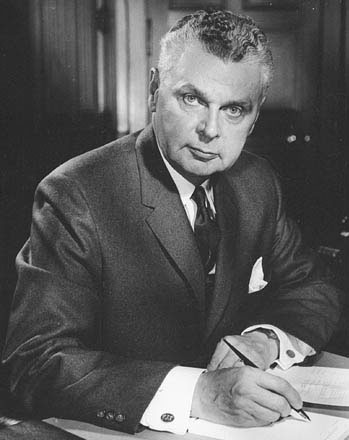httpv://www.youtube.com/watch?v=nokTjEdaUGg
A segment people might commit to memory if it made any sense. (Tina Fey comes closest by quoting Palin verbatim here.)
Vanity Fair has an article on Sarah Palin this month, which she has used as an excuse to accuse the “lamestream media” of being “impotent” and “limp” — which actually confirms how she is portrayed in the article: snarling, thin-skinned, and incapable of accepting anything but adoring praise without going immediately on the attack in an effort to bully opponents into silence. And with Fox News behind her, she can afford to stomp around noisily, swinging a big stick the entire time. She is the anti-Obama. No cool. No control. All drama. All the time.
A sample from Vanity Fair:
Palin has been a national figure for barely two years—John McCain selected her as his running mate in August 2008. Her on-the-record statements about herself amount to a litany of untruths and half-truths. With few exceptions—mostly Palin antagonists in journalism and politics whose beefs with her have long been out in the open—virtually no one who knows Palin well is willing to talk about her on the record, whether because they are loyal and want to protect her (a small and shrinking number), or because they expect her prominence to grow and intend to keep their options open, or because they fear she will exact revenge, as she has been known to do. It is an astonishing phenomenon. Colleagues and acquaintances by the hundreds went on the record to reveal what they knew, for good or ill, about prospective national candidates as diverse as Bill Clinton, George W. Bush, Al Gore, and Barack Obama. When it comes to Palin, people button their lips and slink away.
Palin’s rallying cry is “We’re taking America back!” Back? Where did it go? And back from whom? Oh. Right. It starts with Obama and extends to everything that does not rise to the Palin standard of representing the “real America.” For her followers, who are well-polled on the issue, these include non-whites, non-Christians, Christians not Christian enough to believe in the End Times, city dwellers, gays, lesbians, liberals, and voters under 30. In other words, taken all together, most of the country.
“Conservatives” like Palin revere Ronald Reagan as the most perfect president for a more perfect union, even though he raised taxes every year after 1982 (including what was then the largest tax increase in American history), and increased government spending more than twice that of the Ford and Carter administrations combined. He did this while also running record deficits (tripling the national debt), a feat surpassed only by George W. Bush. He was moreover responsible for the collapse of the Savings and Loan industry through irresponsible deregulation. And — does this sound familiar? — $160 billion in losses had to be picked up by the American taxpayer. But these inconvenient and verifiable facts are simply thrown down the memory hole. It only matters the legend persist that Reagan brought down Communism with one well-placed judo chop, so there can’t be much reality to the perception of him from any angle. Frye, however, saw it very clearly. Here are two of his observations on Reagan from Denham’s Frye Unbuttoned:
Television brings a theatricalizing of the social contract. Reagan may be a cipher as President, but as an actor acting the role of a decisive President in a Grade B movie he’s I suppose acceptable to people who think life is a Grade B movie. (249)
The Soviet Union is trying to outgrow the Leninist dialectical rigidity, and some elements in the U.S.A. are trying to outgrow its counterpart. But it’s hard: Reagan is the great symbol of clinging to the great-power syndrome, which is why he sounds so charismatic even when he’s talking the most obvious nonsense. (250)
Which brings us back round to Sarah Palin. She can’t speak in unscripted grammatical sentences, and she’s as mean and flinty as Reagan was genial and reassuring. But apparently she’ll do for a “great-power syndrome” now in such a delusional state that empirical evidence and the historical record are swept aside by a policy of reckless lies delivered with indifference to the damage they do– such as Palin’s infamous “death panels,” which reduced reasoned debate about health care reform to paranoid hysteria.
The reason I always put “conservative” in quotes when talking about such people is because they’re not conservatives. They’re oligarchs. Conservatives accept change while promoting social stability. Conservatives respect tradition and do not seek the radical overturning of it. Disraeli was a conservative (“Upon the education of the people of the nation the future of the nation depends”). Palin is not. She’s more like a narcissistic personality disorder with a political action committee.

